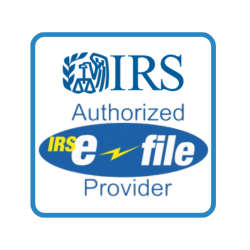Table of Contents
ToggleLawmakers are once again attempting involving private debt collectors in tax collection efforts. A little known provision of the Fixing America’s Surface Transportation (FAST) Act allowed the IRS to outsource some collections to private contractors in an effort to recover approximately $138 billion in severely overdue tax debt.
If you get a call from someone alleging to be from one of these private companies or from the IRS, how can you tell if the call is real or a scam? After all, you’ve likely heard about calls from fake IRS agents attempting to steal people’s money or account information, so how can you protect yourself?
In this article, we discuss the background of the program that allows the IRS to use private collection companies, and offer tips to help you distinguish between legitimate tax-related collection efforts and scam calls.
If you have received written notice from the IRS or a call from one of the companies listed below, you need to take action right away or you could face additional tax penalties. Contact us online to learn more about what action you can take immediately.
When did private collectors take over?
In April of 2017, the IRS started sending out letters to taxpayers informing them that their back taxes were being transferred to private collections. The Service started sending about 100 letters (Notice CP-40) per week and scaled up to 1,000 per week.
As many as 140,000 accounts with balances under $50,000 will be turned over to private collections companies. There are only four companies that the IRS chose to work with, they include:
- CBE based in Waterloo, IA
- ConServe with offices in Fairport, NY
- Performant located in Pleasanton, CA
- Pioneer in Horseheads, NY
These private firms are required to send their own letter letting you know that they are taking over collection efforts. This is the first way to distinguish legitimate IRS/private collections over scammers. First contact is always a letter.
Phone calls: Private collections firms can and will call you
You have the right to verify the identity of the caller. Scammers will not allow reasonable timelines, but the IRS private contractors offer 60 days. They will place the account on hold during the time it takes to send out another authentication letter.
This is where one of the companies, Pioneer, recently got into trouble. Several U.S. Senators received complaints about collection tactics and requested the company to allow it to review its call scripts. Pioneer was only placing accounts of hold for 5 business days. The Senators asked that the company change its practice.
How to pay?
You may have told the IRS and now a private collections agent that you can’t “squeeze blood out of a turnip” and you have no means to pay. If the caller suggests robbing your 401(k), taking out a second mortgage or using a credit card, ask more questions.
These are actually some of the practices Pioneer is accused of using. While not quite the demand of scammers to send payment via iTunes gift card or prepaid debit cards, these suggestions are not okay.
If you can’t pay because of a hardship, the account should be returned to the IRS.
There are programs available such as the Hardship/Currently Not Collectible status. An offer in compromise or a 72-month installment agreement might also provide some relief. Pioneer call scripts suggested payment plans were available out to seven years, which was incorrect.
Fair Debt Collection Practices (FDCP) Act
Private collection agencies must follow the FDCP. They also cannot use threats. Any caller who threatens to send police immediately if you don’t pay is a scam artist.
The FDCP also prohibits collections agents from using false or misleading statements. For that reason, most of these companies have developed scripts that its agents use when speaking with you about the debt you owe.
If statements are not clear or don’t seem right, learn your rights as a taxpayer. Private collection firms do not have the same powers of the IRS. They are not authorized to file a lien or garnish assets from a bank account or paycheck. Anything they say to the contrary should be reported to the Taxpayer Advocate General.
The IRS wants to collect back taxes, but it’s against everyone’s interests if payments cause you to lose your home or deplete your retirement savings. You might owe taxes, but that does not mean you gave up your rights to be treated fairly.
If you are being hounded by a private debt collector over tax debts totaling thousands of dollars, speak with a tax attorney. There might be a solution that will resolve past tax problems and keep them from occurring in the future.














